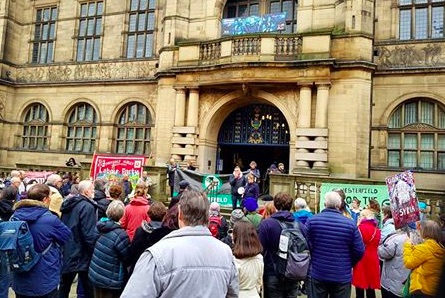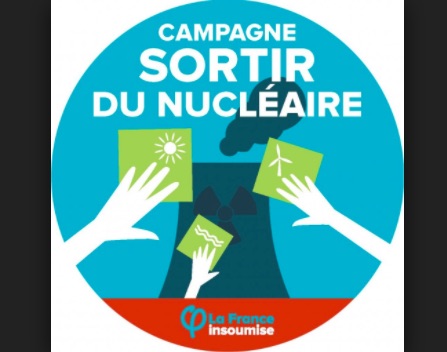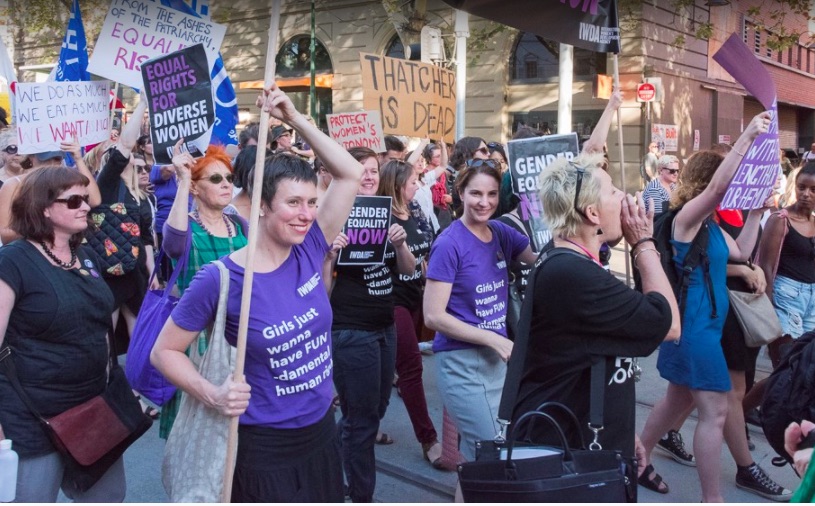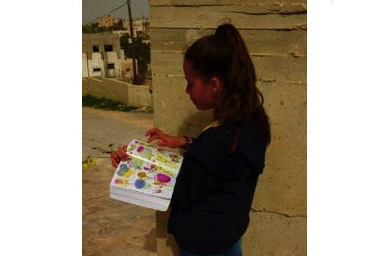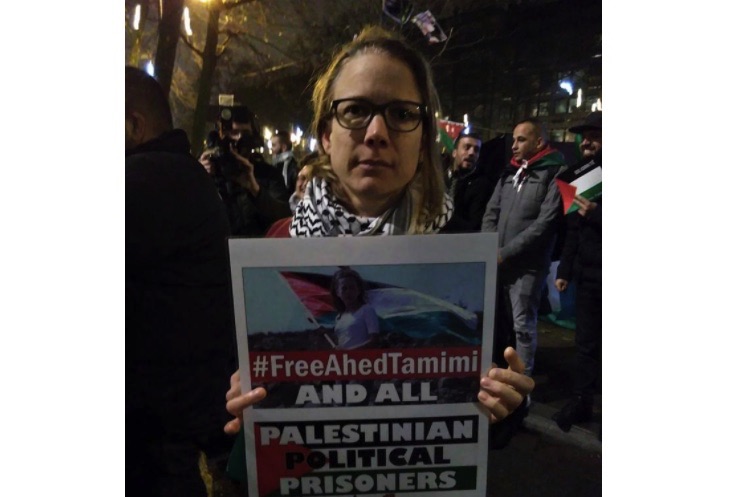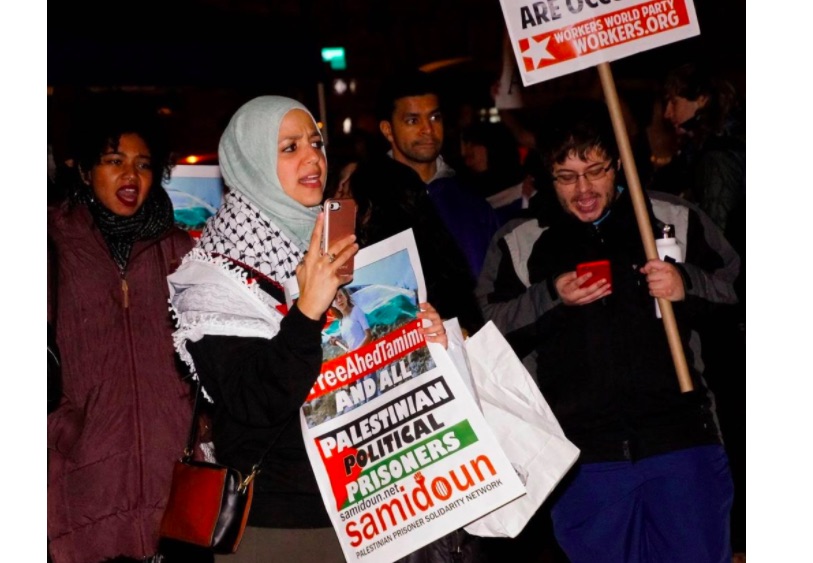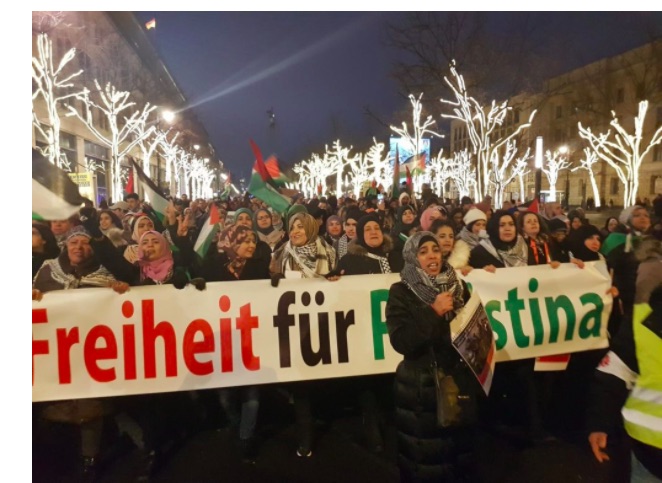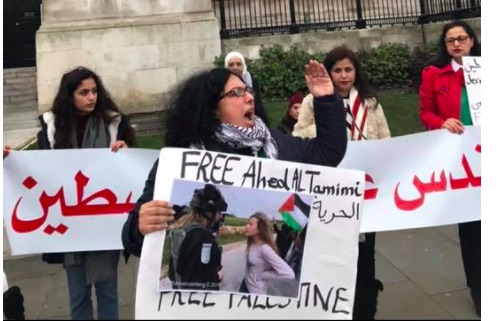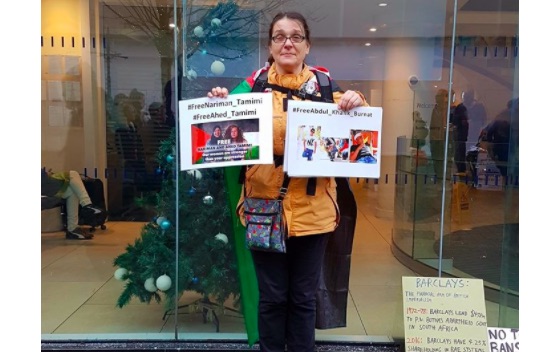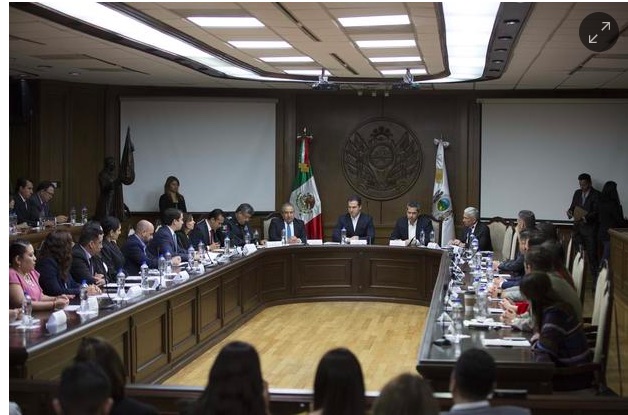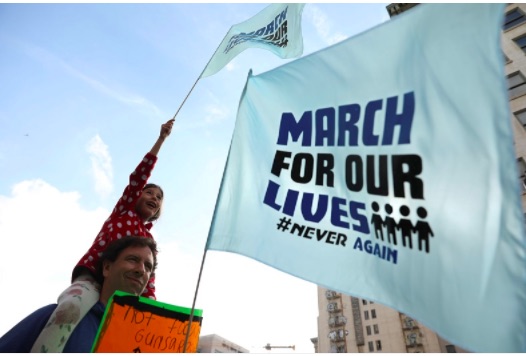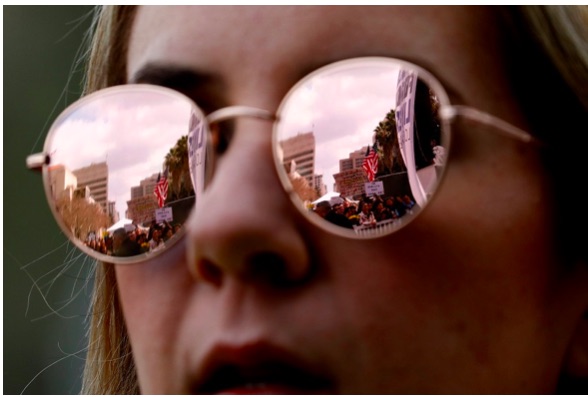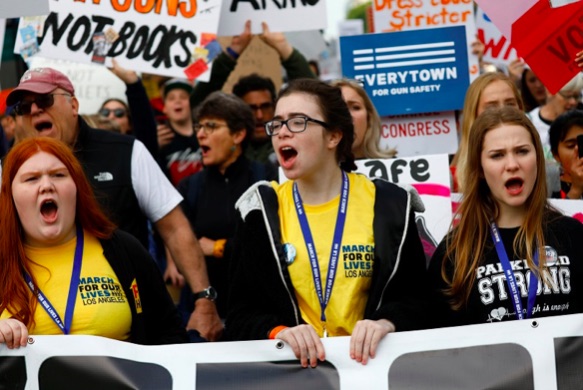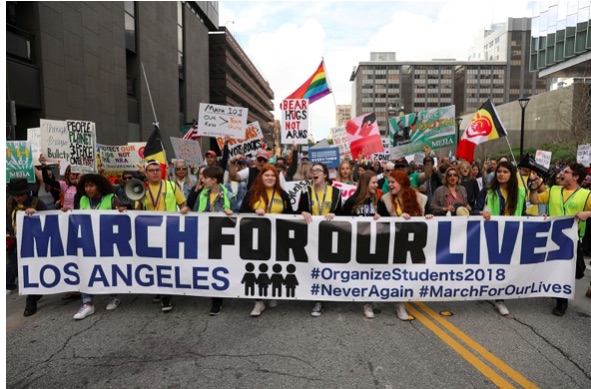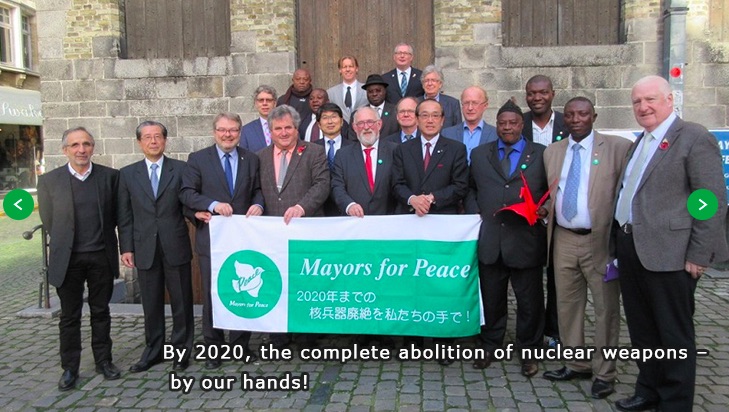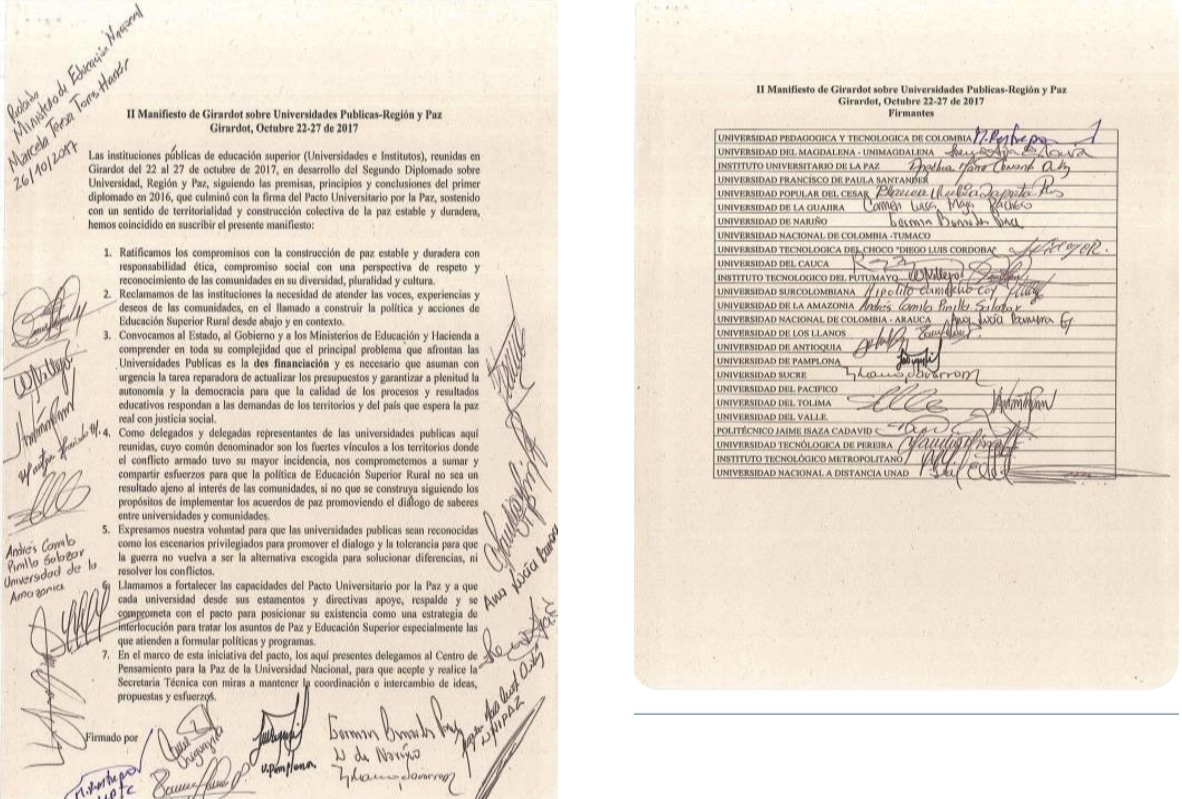DISARMAMENT & SECURITY .
An article from Telesur TV
Leftists and anti-war protesters took to the streets in many cities around the world over the weekend against to renounce and reject the U.S.-led assault against Syrian government structures with the support of France and United Kingdom.

Demonstrators protest after the missile strikes on Syria, outside the White House in Washington, U.S., April 14, 2018. Photo | Reuters
In the U.S. hundreds of protesters gathered in major cities, including New York City, Washington, Chicago and Portland. In Manhattan, people demonstrated in front of the Trump Tower to protest the president’s decision.
In Mexico City, activists met outside of the U.S. embassy and hung banners and flags on the protection fence to demand rights for everyone, regardless of their country of origin, and in rejection of the wall being built between Mexico and the U.S.
In Santiago de Chile demonstrators held a rally outside the U.S. embassy, waving Syrian flags and chanting slogans. They were confronted by the Chilean police and some protesters were arrested.
In London, members of the Stop the War Coalition (STWC) protested Friday outside Prime Minister Theresa May’s residence to demand she refrains from joining any attack on Syria. The protest was joined by people of several backgrounds, including Syrians residing in the United Kingdom.
The protesters read a letter signed by politicians, celebrities, academics and unionists, declaring that “further military intervention, as proposed by Trump, May, or Macron, is not the solution.”
How can we be sure to get news about peace demonstrations?
In Greece, thousands of people showed up for a rally organized by the Greek Communist Party in Athens to protest the attack on the Syrian government.
According to Greek police, between 6,000 and 7,000 people marched from Syntagma Square to the U.S. embassy, chanting anti-imperialist slogans. Anti-riot police blocked access to the embassy and protesters painted “Americans, murderers of people” in front of it. No clashes were reported and protesters left peacefully.
Dimitris Koutsoumbas, the head of the Communist Party in Greece, criticized Greek politicians for believing the U.S.’s “flimsy excuses about the use of chemical weapons” by Bashar Assad in order to attack Syria.
“The imperialists once again spill the blood of the local people. They destroy and splinter states by using fabricated evidence,” said Koutsoumbas.
In India, members of the Socialist Unity Center of India-Marxist (SUCI-M) and anti-war activists met Sunday in Kolkata to protest the airstrikes, and burned an effigy depicting Donald Trump, with sketches of Macron and May sticked to it.
Protesters held signs reading messages such as “rise up, protest against U.S. missile attack against Syria” and “”in protests against US missile attack on Syria.”
In Cyprus, left-wing activists also protested Sunday at the gates of the RAF Akrotiri, a British royal air force military base in an “overseas territory” in the Mediterranean island, near Limassol.
The United States, United Kingdom and France fired early Saturday over 100 missiles into Syria according to the Syrian government, Russia and the U.S. military. The Syrian army said that more than 70 missiles of the 105 fired at its structures were intercepted by its air defenses.
The United Nations Security Council rejected Saturday a resolution proposed by Russia seeking to condemn the U.S.-led attack in Syria. Only Russia, Bolivia and China voted in favor of the resolution.
Meanwhile global chemical weapons watchdog OPCW inspectors arrived in Syria Saturday and were due to try to reach the site of a suspected poison attack in the Syrian town of Douma in eastern Ghouta.
